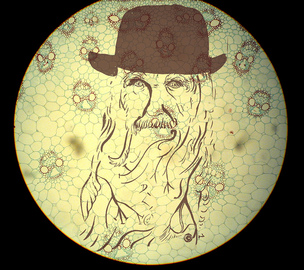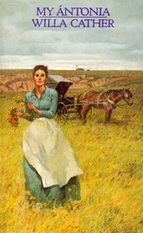|
with Angela Harris The Call is Answered  Our final class on The Call of the Wild ended with a brief discussion of Rudyard Kipling's The Cat that Walked by Himself, our customary three-minute free-write, and a 'round-the-virtual classroom sharing of our quiz answers. I think everyone did pretty well, but it definitely proved a little tricker than I had planned. Check with your students to learn their scores if you are keeping track this year. Reviewing the answers gave us a great opportunity to discuss things we did not understand fully the first time around. That really should be the goal of testing, in my view! Darwinism, Nietzsche, and Jack London Charles Darwin, English Naturalist Charles Darwin, English Naturalist To wrap up our study of Jack London we learned about two of his influences: Charles Darwin, the English naturalist, and Friedrich Nietzsche, the German philosopher. London read voraciously and took with him to the Klondike Darwin's On the Origin of Species, although Darwin's greatest influence on London was really through the writer, Herbert Spencer. It was Spencer that coined the phrase "the survival of the fittest" (even though those words do appear in Darwin's work), and it was this theory that most appealed to Jack London, as he incorporated it into many of his short stories and novels. We also learned that London ascribed to Social Darwinism and was a racialist. He thought that certain favored races were destined for survival, particularly the Anglo-Saxon and Teutonic races. London was also heavily influenced by Nietzsche's writings, in particular, Thus Spoke Zarathusa. Nietzsche advocated the idea of the individual to the point of describing a "superman" or beyond-man" that was perfect in every way (mind, body, strength, intelligence) and not encumbered by religious teachings or social considerations. London would later write an indictment against this philosophy through his novels, The Sea Wolf and Martin Eden, but also embrace it to some extent through his work, Burning Daylight. London felt that individualism would fail without cooperation (or in his view, socialism). Having a basic idea of an author's philosophies can give the reader a much deeper appreciation of the works that writer is creating. This is by no means an exhaustive profile on London's philosophies, but a little window into the ideas that shaped his thinking. Thesis with TensionIn preparation for our next session, which will cover the Expository Essay exclusively, we revisited the concept of creating thesis statements, but this time we learned how to create a thesis with tension. After giving a couple of examples and sentence starters, the students were then read a list of interesting topics and tasked to pick four. Their assignment at the end of class was to simply develop four questions around their topics (one for each topic). It could be a question that they have, or that they think someone else might have about the topic. We'll pick up this exercise at the beginning of the next session on Wednesday, February 25, so please make sure you have those four questions written and available for our next class. Also, all final projects are due by February 25. See you then! Next book: My Antonia by Willa Cather I'm really excited about our next novel--another American masterpiece that will cover topics such as westward expansion, immigration, and the role of women in pioneer America. Can't wait! Please view the synopsis video and make sure to secure a copy of the book before the 25th. It's available for free on-line or through any of your e-reader apps. Let me know if you have any questions! Comments are closed.
|
Categories
All
Archives
May 2016
|

 RSS Feed
RSS Feed